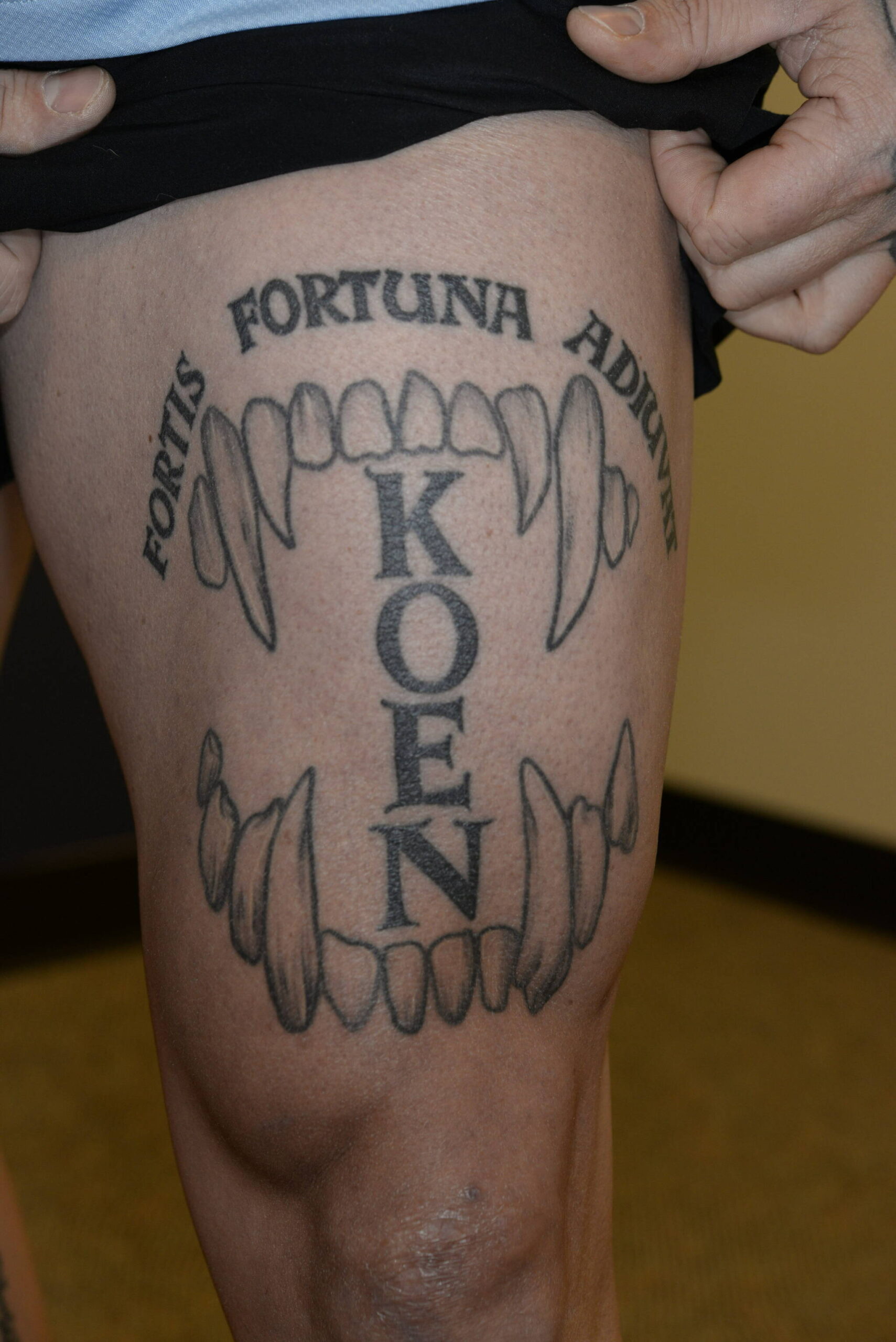The King County Superior Court ruled former Auburn police officer Jeffrey Nelson’s prior uses of force and tattoos will not serve as evidence against him in the murder trial of 26-year-old Jesse Sarey.
Nelson faces a charge of murder in the second degree and assault in the first degree for killing Sarey on May 31, 2019, while on duty.
The court also ruled previous instances of Sarey’s interactions with Auburn police and disruptive public behavior will not serve as evidence for Nelson’s defense team.
Judge Nicole Gaines Phelps, overseeing Nelson’s court proceedings, denied motions on May 8 for admissions of evidence from both the prosecutorial and defense team.
According to an affidavit of probable cause, Nelson responded to calls on May 31, 2019, regarding a man “throwing items outside the store at vehicles and hitting and kicking the walls of the store and a Redbox machine.”
Video showed Nelson shooting Sarey in the torso after Sarey resisted arrest and engaged in a struggle with Nelson, resulting in Sarey falling back. Nelson proceeded to clear a jammed round on his gun and racked another round prior to shooting Sarey in the forehead.
Nelson’s case awaits further action, with no trial date scheduled as of May 19, 2023.
Nelson is the first officer in Washington to face a murder charge since the passage of Initiative 940, which lowered the criminal liability standard for law enforcement for using deadly force.
Prosecutorial admissions
Prosecutors motioned to admit prior instances of Nelson’s use of force and pictures of Nelson’s tattoos, including tattoos reading: “Punish the Deserving;” the name of Nelson’s K9 “KOEN” surrounded with fangs; “One Day as a Lion;” “Judged by XII Carried by VIII;” and the Latin phrase “Fortis Fortuna Adiuvat,” translating to “fortune favors the bold.”
Prosecutors motioned to submit as evidence 10 separate incidents involving various uses of force in prior incidents by Nelson while on duty.
In one instance, Nelson tasered and employed a lateral vascular neck restraint on a young man and omitted material facts surrounding his actions in his written report, prosecutors described.
In another, Nelson celebrated an arrest with a “high-five” and “fuck yeah” after releasing his K9 on an already surrendered subject, staring down at the injured and crying 15-year-old, according to prosecutorial documents.
Prosecutors explained the prior incidents and Nelson’s tattoos served to establish consistency with Nelson’s “common scheme and plan of using force when confronted with disrespect of his position of authority” and Nelson’s use of deadly force against Sarey.
Judge Phelps denied the admission of prior incidents and Nelson’s tattoos on the grounds that prosecutors failed to “(establish) a proper basis for the admission.”
According to court documents, the lack of evidence for the court to determine whether the prior incidents resembled Nelson’s conduct in the events of Sarey’s death, and the lack of association between Nelson’s tattoos and a “common scheme or plan to use violence,” led Judge Phelps to decline the admissions.
Defense admissions
Nelson’s defense motioned to admit as evidence Sarey’s previous contact with an Auburn Police Department sergeant, instances of Sarey’s conduct on multiple dates, and Sarey’s outstanding arrest for violating the conditions of parole.
The defense motioned to submit testimony from Sgt. Damon Hewin of the Auburn Police Department regarding an incident on June 4, 2017, of Sarey resisting arrest, resulting in a struggle.
Sgt. Hewin testified at an evidentiary hearing in June that he suspected Sarey “was under the influence of drugs at the time, (that) he was genuinely surprised by Mr. Sarey’s actions and strength during their encounter, and following Mr. Sarey’s arrest, two glass pipes containing white residue were located in Mr. Sarey’s pockets” that tested positive for the presence of methamphetamine.
The defense pushed to admit the incident as evidence as rebuttal to assertions that Nelson’s use of deadly force against Sarey served as “unnecessary and unreasonable,” according to court documents.
The court determined the incident as inadmissible as evidence because the court lacked a persuasive argument that at the time of Nelson and Sarey’s interactions, Nelson held knowledge of the June 4, 2017, incident.
The defense also presented multiple legal theories in support of the request for admission of the incident including “strength and fighting prowess; intent, motive, and absence of mistake; common scheme or plan; and evidence of attitude towards police.”
The court refuted all legal theories introduced.
Additionally, Nelson’s defense motioned to admit instances of Sarey damaging property and engaging in disruptive behavior on three separate days and an outstanding warrant for Sarey’s arrest because he failed to register as a sex offender for a 2013 misdemeanor.
The court denied in-part prior events of Sarey’s behavior unknown to Nelson at the time as admissible evidence.
The court agreed and granted in-part that knowledge of Sarey that Nelson held prior to his interaction with Sarey through his contacts with witnesses and as relayed to him through 911 dispatch served as admissible evidence.
The court denied the defense’s motion for admission of the arrest warrant as evidence because the record lacked any evidence Sarey knew about the outstanding arrest nor that his failure to register as a sex offender could result in an issuance of an arrest warrant.
“This evidence lack probative value or relevancy as to Mr. Sarey’s state of mind, e.g. possible motive or intent to resist arrest,” reads Phelps’s document.
Nelson’s defense team motioned the court on May 18 to reconsider denying an incident regarding Sarey stating, “good, maybe the cops will kill me” 20 minutes prior to Nelson shooting him after an individual threatened to call the police on him.
Nelson’s defense argued Sarey’s state of mind immediately prior to and during his interaction with Nelson served as relevant evidence.


